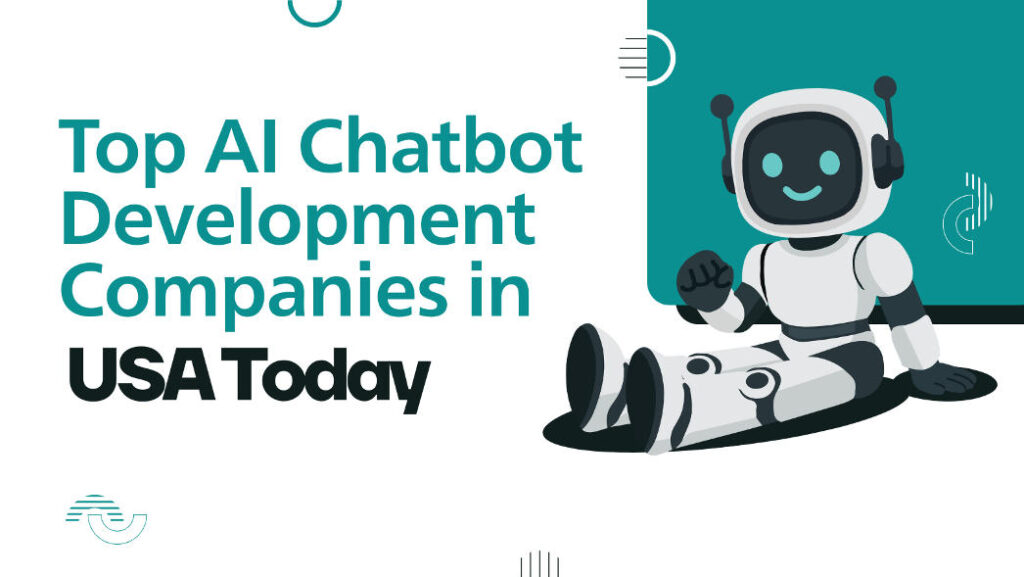Organizations are starting to apply agentic AI during this digital transformation era to motivate creativity, agility, and efficiency. When it comes to managing staff and resources, workforce management is an area where smart automation is making a big difference. Automation using robotic technology, AI automation, and AI chatbots plays a crucial part in helping companies achieve an efficient, active, and easily adaptable work environment.
Agentic AI, which can make choices and follow through with plans, will soon take the lead in workforce changes as companies try to cut costs.
Agentic AI in Workforce Management
An agentic AI system can act by itself, make decisions, grow from its results, and improve its future performance. While conventional AI needs humans to execute complex tasks, agentic AI can do these things on its own.
An agentic AI’s approach to managing employees includes activities beyond keeping attendance and creating schedules. It helps predict a lack of workers, directs resources effectively, automates compliance, and can communicate with employees via smart interfaces.
The addition of RPA services makes this intelligence more powerful by making the operations automated and smart.
Power Of Robotic Process Automation (RPA) Service
Carrying out simple and repetitive processes in HR, payroll, compliance, and planning is possible using the fundamental tools in Robotic Process Automation (RPA) services. Rapid and correct execution by these companies is possible when software robots imitate human actions with computers.
Advantages of RPA in workforce management:
- Automates time-consuming activities like resume screening, benefits administration, and time tracking.
- Manual data entry error reduction can be reduced up to 70%.
- Deloitte estimates that HR divisions cut operational costs by 30–50%.
- Within twelve months of implementing RPA, more than 78% of companies claim to have achieved good ROI.
An RPA company with all the tools can customize automation solutions depending on the specific requirements of every company, therefore producing significant value and sustained scalability.
AI Automation: From Reactive to Proactive Workforce Strategy
AI automation brings intelligence to the system; RPA manages the “doing”. AI automation is the use of artificial intelligence to make decisions, examine data trends, and generate smart insights that guide strategic workforce planning.
AI automation in workforce management:
- Predictive workforce analytics projects waste, spots skills shortages, and predicts hiring demands.
- Analyzes employee data to offer real-time comments and development suggestions via automated performance reviews.
- Smart scheduling dynamically aligns task demands with employee availability and competencies.
- By 2026, 50% of big companies will reportedly use AI automation in workforce planning, hence enhancing productivity and lowering administrative burden.
Moreover, AI automation makes adaptive learning possible, whereby algorithms always improve their decision-making processes in response to fresh data, therefore increasing the responsiveness and data-driven nature of staff management.
Transforming Staff Interaction through AI Chatbot Development
Another vital element of the contemporary digital workforce is AI chatbot development. Being the front line of employee engagement, these AI-powered virtual assistants help to simplify communication and improve access to HR resources.
From handling basic HR questions to supporting onboarding, AI chatbot development lowers HR staff load and increases employee happiness.
Advantages of AI Chatbots for Companies:
- Offers 24-hour service for typical HR questions.
- Employees can quickly access benefits, payroll, and leave policy information.
- Handles thousands of contacts at once without extra human help.
According to a recent IBM study, companies that utilize AI chatbots saw improved employee engagement ratings as well as a 30% rise in HR process efficiency.
An RPA Company’s Role in Agentic AI Deployment
Expertise, strategic planning, and continuous improvement are needed for agentic AI, RPA tools, and AI automation implementation. This is where an ideal RPA company becomes rather priceless.
What to Look for in an RPA Company:
- Demonstrated track record and results in several sectors using RPA and artificial intelligence solutions.
- RPA’s capacity to interface with current HRIS, ERP, and CRM systems
- An intelligent, scalable solution will be developed by a team experienced in AI automation and AI chatbot development.
- Advice on handling employee changes brought about by automation acceptance.
Case Studies and Data: Real World Impact
Let’s look at some actual scenarios showing how Agentic AI may change things in employee management.
First Case Study: Worldwide Retail Chain
To simplify HR tasks across 3,000 locations, a global retail corporation used RPA services and AI chatbot development.
- Automated time-off requests and approvals using robots
- An HR chatbot was deployed to help with answers.
- Result: Employee happiness grew by 25% and HR processing time dropped by 35%.
Second Case Study: Financial Services Company
A top financial company worked with an RPA specialist to automate its onboarding and compliance training process.
- Integrated artificial intelligence automation to tailor learning paths for new employees
- Result: Over $1.2 million yearly saved by a 10-day to 4-day cut in onboarding time
These instances show how RPA solutions, artificial intelligence automation, and AI chatbot development are not only operational tools but also strategic enablers of innovation and development.
Challenges and Requirements
Although the advantages are attractive, companies have to negotiate several difficulties when using Agentic AI and related tools:
- Automating staff procedures calls for managing sensitive employee data. Compliance with all laws, including GDPR, is absolute and non-negotiable.
- Employees have to be educated to operate alongside artificial intelligence systems. Smooth transitions depend on upskilling.
- Although long-term savings are noteworthy, initial costs might be a barrier for small companies.
These difficulties can be overcome with the help of an experienced RPA company and a tactical road map.
Deepening the Strategic Role of Agentic AI in Workforce Management
Agentic AI is increasingly becoming important for strategic workforce planning and decision-making as companies adapt to economic volatility, labor shortages, and changing expectations. Companies today use AI automation not only to cut expenses but also to be more agile, resilient, and forward-looking.
Let’s examine more closely how Agentic AI, together with RPA solutions, makes human capital management data-driven and employee-focused possible.
Reskilling And Upskilling Using Artificial Intelligence Automation
Particularly in industries being quickly digitally disrupted, the contemporary workforce expects continuous learning and upskilling. Employers can use AI automation to evaluate skill gaps, suggest individualized learning routes, and automate training assignmentsthereby fostering a large-scale learning environment. An RPA company can deploy AI to
- Link staff members to chances for upskilling.
- Advise position changes grounded in changing skill sets.
- Project how emerging technologies will affect labor demand.
By 2025, the World Economic Forum estimates that more than 50% of all employees will need reskilling. AI automation lets companies proactively satisfy this demand without overburdening HR staff members.
Using Predictive Analytics To Improve Employee Retention
Companies that use appropriate RPA solutions, automate surveys, analyze internal communication tools, and track engagement signals can identify unengaged workers early. These observations enable HR departments to intervene strategically, either through coaching, benefits changes, or workload realignment.
Using AI chatbot development, businesses can provide staff a secure, private channel to raise questions and get advice, therefore increasing trust and lowering turnover.
RPA Services and AI Uplifting the Recruitment Process
Another area where Agentic AI and RPA solutions cooperate to enhance speed, quality, and candidate experience is recruitment. Common recruitment procedures are slow, manual, and perhaps biased. Companies driven by artificial intelligence:
- Quickly scan thousands of resumes for cultural fit, experience, and skills
- Arrange interviews using AI bots that line up availability across several calendars.
- Use AI chatbots asking role-specific questions to pre-screen applicants.
Using a mix of RPA tools and artificial intelligence chatbots, a leading RPA company assisted a technology startup in decreasing its time-to-hire from 35 days to 12 days, therefore greatly enhancing candidate engagement.
Ensuring Governance and Compliance
Maintaining compliance has gotten more difficult as workplace rules change, especially in finance, healthcare, and government sectors. Manual monitoring raises the risk of non-compliance and related fines.
Automated robotic process automation (RPA) services can:
- Check renewals and certifications of employees.
- Examine employee leave patterns and time logs.
- Create compliance reports for government inspectors.
Coupled with artificial intelligence automation, systems can identify abnormalities, mark possible compliance violations, and suggest remedial action. This shows due diligence in legal matters and helps to minimize human mistakes. Compliance-related automation users, per PwC, had a 40% reduction in audit-associated costs and a 45% increase in risk detection.
Small Enterprises Join The Artificial Intelligence Revolution
RPA services and AI automation were historically seen as technologies for corporations of scale. But today, cloud-based automation solutions have democratised the availability of these tools, therefore enabling small and SMBs to use them.
Even smaller businesses now can:
- Develop an AI chatbot to automate staff questions and customer support.
- Choose RPA solutions to automate invoice processing and payroll handling.
- Track team productivity and schedule optimization relying on artificial intelligence automation.
Businesses no longer require deep pockets to begin with pay-as-you-go systems and open-source frameworks. Nowadays, many prosperous RPA companies provide modular solutions with quick deployment times and little internal IT participation required.
Conclusion
Agentic artificial intelligence is a current force altering workforce management, not a futuristic idea. Businesses may build smart, autonomous systems that propel efficiency, lower costs, and improve employee experience by including RPA services, AI automation, and AI chatbot development. Organizations have to work with a future-oriented RPA company that can offer not only tools but also solutions to effectively negotiate this change. Businesses that adopt innovation will own the future.
The time to investigate Agentic AI and RPA is now if you are ready to future-proof your workforce plan.




